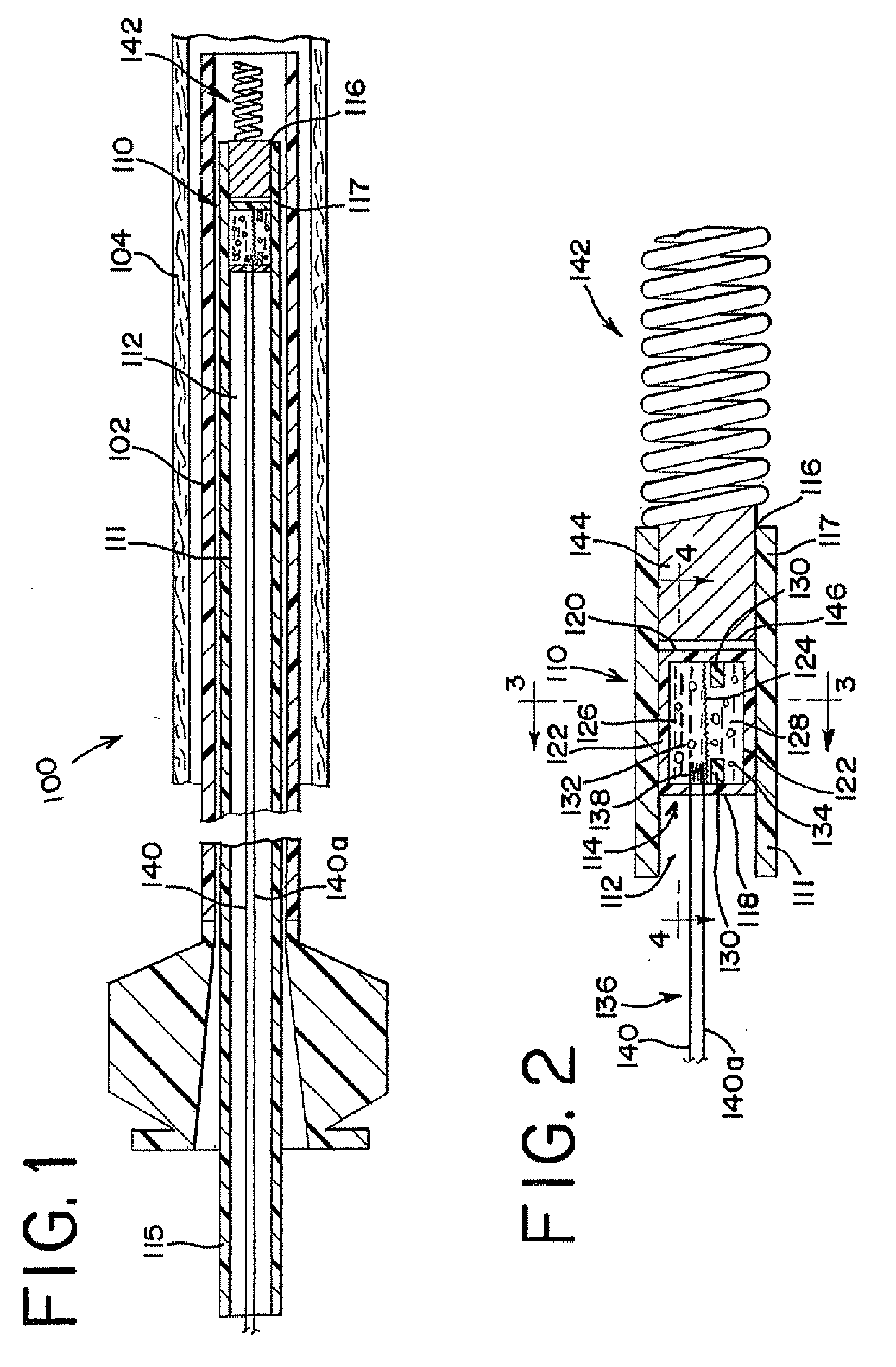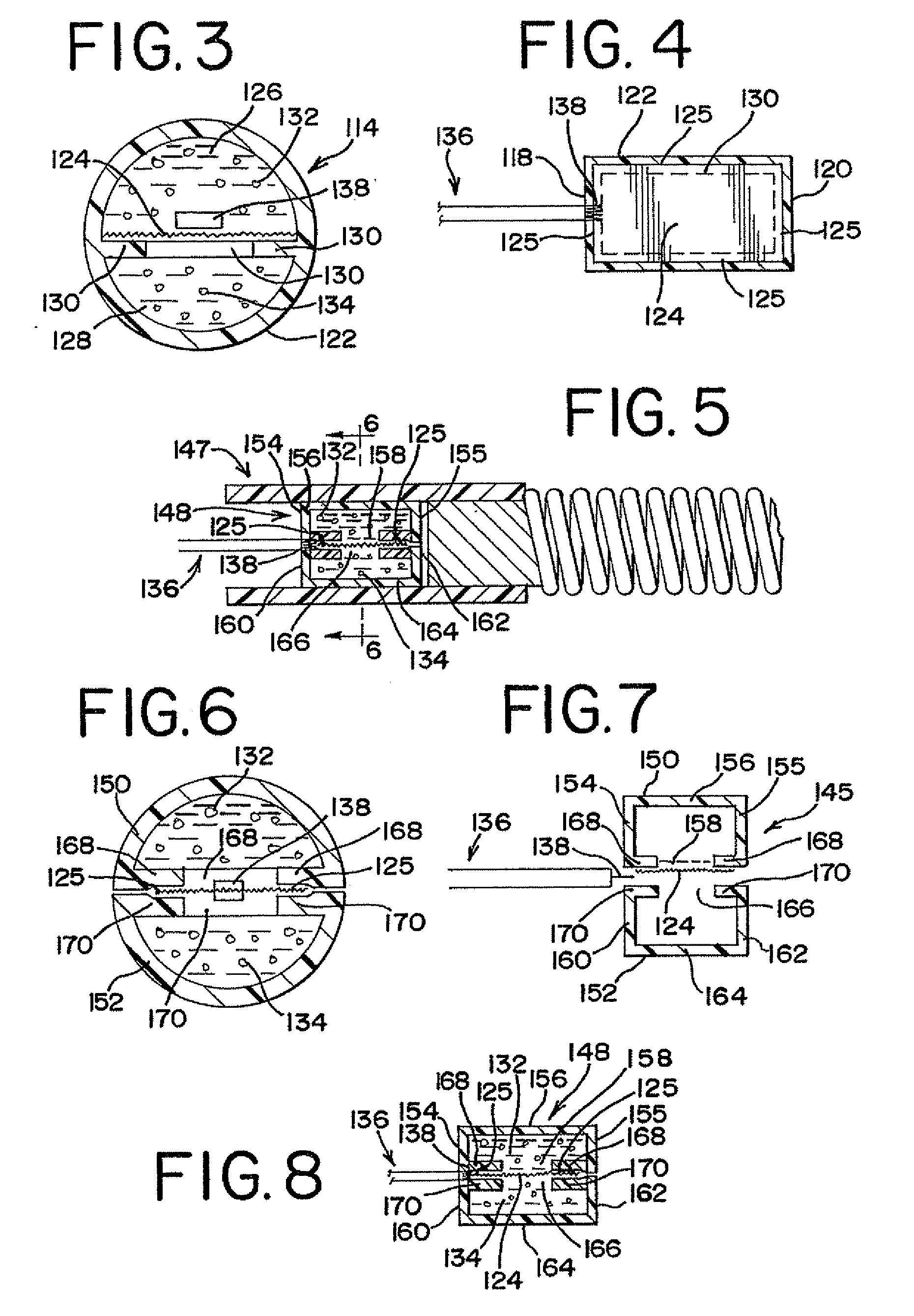Chemically based vascular occlusion device deployment
a vascular occlusion device and chemical technology, applied in the field of chemical based vascular occlusion device deployment, can solve the problems of coil overshooting, coils cannot be retracted, and may migrate to an undesired location, etc., to achieve accurate and rapid deployment of vascular occlusion devices
- Summary
- Abstract
- Description
- Claims
- Application Information
AI Technical Summary
Benefits of technology
Problems solved by technology
Method used
Image
Examples
Embodiment Construction
[0024]As required, detailed embodiments of the present invention are disclosed herein; however, it is to be understood that the disclosed embodiments are merely exemplary of the invention, which may be embodied in various forms. Therefore, specific details disclosed herein are not to be interpreted as limiting, but merely as a basis for the claims and as a representative basis for teaching one skilled in the art to variously employ the present invention in virtually any appropriate manner.
[0025]FIG. 1 generally illustrates a preferred embodiment of the vascular occlusion device deployment system of the present invention. The deployment system, generally designated at 100, includes an elongated flexible guiding catheter 102 which is inserted into the vasculature of a patient, such as blood vessel 104, and used to guide a deployment unit, generally designed 110, to a preselected site in a manner generally known in the art. The deployment unit 110 includes an elongated flexible pusher ...
PUM
 Login to View More
Login to View More Abstract
Description
Claims
Application Information
 Login to View More
Login to View More - R&D
- Intellectual Property
- Life Sciences
- Materials
- Tech Scout
- Unparalleled Data Quality
- Higher Quality Content
- 60% Fewer Hallucinations
Browse by: Latest US Patents, China's latest patents, Technical Efficacy Thesaurus, Application Domain, Technology Topic, Popular Technical Reports.
© 2025 PatSnap. All rights reserved.Legal|Privacy policy|Modern Slavery Act Transparency Statement|Sitemap|About US| Contact US: help@patsnap.com



